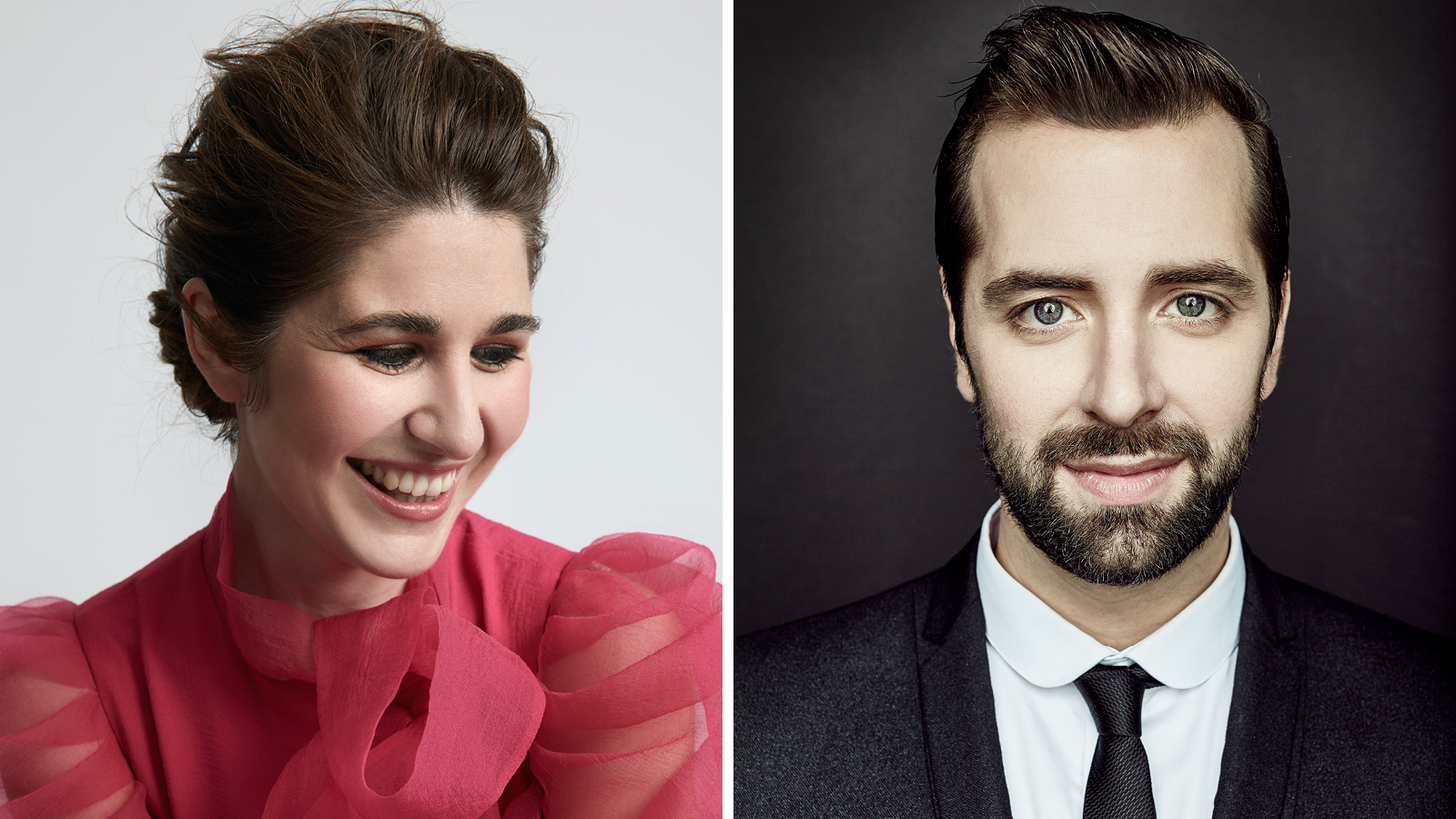

Tchaikovsky’s Eugene Onegin
April 1 – 5, 2022
The Dallas Symphony Orchestra has Russian composers programmed throughout the 2021/22 season, which was planned in 2020. We believe that these works should continue to be performed; the pieces come from all times in history, from the Czarist age to the authoritarian regime of Stalin. Many of these composers, who are integral to the classical music canon, wrote works in reaction to the oppression and violence of their time living in or being forced to leave the Soviet Union or Russia. These works are reflections of universal human emotions that touch us all. To remove these compositions from the programming is to silence their voices based on tragic events in the contemporary world. Musicians use their art to respond to or transcend politics and reminds us that art has the power to eliminate boundaries and connect us to each other.
FABIO LUISI conducts
ETIENNE DUPUIS baritone (Eugene Onegin)
NICOLE CAR soprano (Tatyana)
PAVOL BRESLIK tenor (Lensky)
BRINDLEY SHERRATT bass (Prince Gremin)
MELODY WILSON mezzo-soprano (Olga)
ALEXIS GALIDO mezzo-soprano (Larina)
CLAUDIA CHAPA mezzo-soprano (Filipyevna)
KEITH JAMESON tenor (Triquet)
ALLEN MICHAEL JONES bass
WILL HUGHES bass-baritone
DANIEL NORWOOD tenor
DALLAS SYMPHONY CHORUS – JOSHUA HABERMANN director
ALBERTO TRIOLA stage director
CAYLEY CARROLL assistant to stage director
YULIA LEVIN repetiteur & rehearsal pianist
JESSICA DRAYTON lighting designer
DIANA CROWDER dance director
KIERA MAYS dancer
COURTLYN HANSON dancer
CARRIE RUTH TRUMBO dancer
KYRA MCGUIRK dancer
ADAM WALLMAN dancer
ROBERTO REYNA dancer
ADAM KULLMAN dancer
TCHAIKOVSKY Eugene Onegin | OPERA-IN-CONCERT – SUNG IN RUSSIAN WITH ENGLISH SURTITLES
Act I, 72 minutes | Act II, 41 minutes | Act III, 35 minutes (approximate durations)
Partake in Fabio Luisi’s mastery of opera and a stellar cast of handpicked soloists in Tchaikovsky’s Eugene Onegin, a Russian lyric opera filled with celebratory tunes, an infectious waltz, passion-soaked arias, plush orchestration and even a dramatic pistol duel.
Based on the poetry of Pushkin, the story is about two friends who fall into a jealous argument at a dance over the young and beautiful Tatyana, ultimately challenging each other to a duel. Onegin is victorious, but runs into Tatyana years later and discovers that she has married Prince Gremin.
Onegin writes Tatyana a love letter and demands a meeting, at which Tatyana acknowledges the reciprocal love but ultimately chooses to honor her promise to Gremin. She flees the stage in tears and Onegin is left alone.
For information on our COVID-19 safety protocols, please visit here.



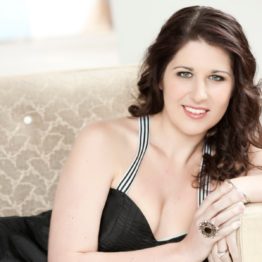



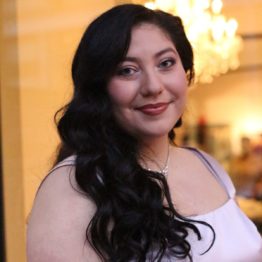





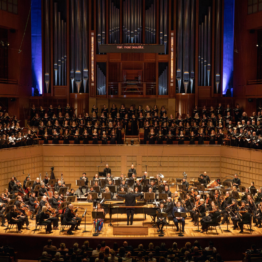
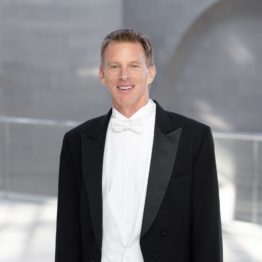

Program Notes
by René Spencer Saller
When Tchaikovsky began his fifth opera, Eugene Onegin, he was mired in a melodrama of his own making. On June 1, 1877, he visited Antonina Milyukova for the first time. She was a student at the Moscow Conservatory, where he had been teaching for the past decade. Although Milyukova barely knew Tchaikovsky, she had been sending him increasingly deranged love letters, threatening suicide if her affections were not returned. Instead of backing away and delegating the problem to someone more qualified to help her, Tchaikovsky responded like an eager suitor. He was moved by the similarity between her hopeless passion and that of Pushkin’s tragic heroine Tatiana, whose decision to declare her love in a letter to a virtual stranger in Eugene Onegin sets off a life-changing chain of events. Tchaikovsky had been considering Pushkin’s classic novel as the source for his next opera for about a month, after his friend the singer Yelizaveta Lavrovskaya suggested it to him. Now it seemed like fate.
With the Pushkin plot still percolating in his mind, Tchaikovsky, a deeply conflicted and self-loathing homosexual, came up with a truly disastrous idea. He proposed marriage to his unstable young admirer, just two days after meeting her. The wedding took place that July. Two months later, he waded out into the ice-clogged Moscow River and tried to drown himself.
With the help of his younger brother and a St. Petersburg psychiatrist, the composer recovered from his nervous breakdown and his brief but traumatic marriage to Milyukova. Over the next eight months, while convalescing in Switzerland and Italy, he wrote and revised Eugene Onegin. His fortunes continued to improve: Nadezdha von Meck, his generous new patron, promised him an annual stipend that would allow him to resign from the Conservatory. For the next 14 years, until von Meck abruptly cut off her generous subsidy, Tchaikovsky was free of his day job and able to devote all his mental energy to composition. He came to consider the enigmatic widow his best friend. The pair exchanged hundreds of remarkably intimate letters without ever meeting in person.
In May 1877 Tchaikovsky wrote to his brother Modest: “How glad I am to be rid of Egyptian princesses, pharaohs, poisonings, and stilted effects of all kinds. What a mine of poetry there is in Onegin.” He finished the opera by January 1878, and revised it in March 1879, October 1880, August 1885, and June–July 1891.
Pushkin’s Plot, via Tchaikovsky
Instead of recounting Pushkin’s story in a continuous, or linear, way, Tchaikovsky’s version of the plot is episodic: the opera dramatizes a few pivotal moments from Onegin’s and Tatiana’s lives. Tchaikovsky adapted the libretto himself, with some assistance from his brother Modest and the poet Konstantin Shilovsky, who helped develop the initial scenario. Several chunks of the libretto are extracted verbatim from Pushkin’s verse-novel.
The composer described the opera as a series of “lyrical scenes in three acts and seven tableaux.” Act II begins some months after Act I concluded; Act III picks up some five years after the end of Act II. Life happens in the interstices, the junctures between then and now. As the characters mature, the power dynamic shifts from jaded heartbreaker-dandy Eugene Onegin to ingenue-turned-grande dame Tatiana: the girl he once thoughtlessly spurned, transformed into the woman he realizes—too late!—is his one true love.
Act I
When we first meet Tanya, the soprano heroine, she’s reading a book and waxing capital-R Romantic (“Have you not heard?”). Her mother, the widowed Madame Larina, reminds her that life is not a pretty story. She and the girls’ nurse, Fillipyevna, reminisce about their youth and remind themselves, not entirely convincingly, that habit is a good proxy for happiness. Olga, her flirtatious, fun-loving little sister, offers a simpler option: be happy and enjoy life in the moment (“Ah, Tanya, Tanya”). All this happens before Tatiana meets her disaffected neighbor, Eugene Onegin, who reminds her of a hero in one of her romances. And just like a heroine in one of her romances, she falls in love at first sight. Her family members tease her for being a sentimental poetess addicted to suffering, but she longs for love, and recognizes it as soon as she feels it. She writes an ardent letter to Onegin (“Let me die, but first”) and pleads with fond old Fillipyevna to find someone to deliver it to him. Tchaikovsky used much of Pushkin’s poetry verbatim in long passages of the “Letter” scene, which contains some of his most enduring melodies.
After receiving the love letter, Onegin devastates the young virgin by turning her down, using the tried-and-true “it’s not you, it’s me” line prevalent among dissolute bachelors and literary cads (“Were I a man whom fate intended…”). He offers to be a brother to her—perhaps a bit more than a brother—but warns her to be more discreet when addressing eligible bachelors, since less scrupulous men might take advantage of her sincere and giving nature. Slut-shaming, 19th-century style, and Onegin has the gall to get all sanctimonious about it! Tatiana is heartbroken and humiliated.
Act II
Act II takes place at Tatiana’s Name Day ball. Onegin, dragged there by Lensky, dances with Tatiana. His mood sours when he overhears the other guests gossiping and sizing them up as a couple. To punish Lensky for bringing him to the ball, Onegin flirts with Lensky’s intended, Tatiana’s heedless and hedonistic little sister Olga, the contralto on whom Tchaikovsky lavishes some of his most lustrous, honey-glazed secondary arias. This rash act of retaliatory flirting leads to a pointless rivalry that culminates in Onegin killing his best friend—the passionate poet Lensky—in a duel. Before he dies, Lensky delivers a perfect valedictory aria, the bittersweet “Kuda, kuda” (“O where have you gone, o golden days of my spring”), his meditation on youth and its ephemeral passions. Then he dies in a duel that he fully acknowledges is ridiculous. Lensky must die because Lensky and Onegin are both stubborn cowards who refuse to back down, apologize, or give up the claims of honor.
Before you scoff at the idiocy of dying in a duel over a woman’s reputation, remember that in 1837, about five years after the last installment of Eugene Onegin was published, Pushkin himself died in a duel, for a similarly asinine reason (his glamorous young wife’s supposed virtue).
Lensky, the lyrical tenor and source of the most unabashedly romantic and Italianate love arias, dies, alone—insufficiently mourned by the faithless Olga, who never appears onstage again. Onegin, the supposed victor, only grows sadder and more nihilistic.
Act III
About five years have passed. Onegin finds himself out of sorts at a fancy banquet. His acquaintance Prince Gremin, it turns out, is now married to a beautiful woman whom he adores unreservedly: Tatiana. It’s entirely to Tchaikovsky’s credit that he gives one of the finest and most memorable arias to Prince Gremin, the antihero hero’s romantic nemesis (“All men surrender to Love’s power”). In another kind of opera, Prince Gremin would be a cuckold for certain, but in this one, the loyal husband prevails.
In their final duet together, Onegin realizes that he is in love with Tatiana, and not, as she suggests, simply drawn to her improved social status. He has always loved her, he realizes, suddenly but too late. He begs her to run away with him. Although Tatiana can’t deny that she still harbors strong feelings for her former neighbor and first love, she prefers to stay true to her faithful husband, the prince, and bids Onegin farewell forever. Does she doom him to eternal torment? As far as he is concerned, yes. Tchaikovsky ends the opera there, with Onegin marinating in his misery.
But at least half of the audience sides with the women and the lovers. The songs we love best are the romantic arias from Lensky and Gremin; young Tanya’s love letter, a rhapsodic outburst of virginal desire; her dusky-throated younger sister Olga’s supple appeal to pleasure and laughter; Madame Larina’s and Filippyevna’s bittersweet memories of their courtship days.
The spurned girl gets both men in the end: the one who broke her heart, and the one she married. Tanya has learned to love the one she’s with, and it certainly doesn’t hurt that he is also a prince and a war hero. Has she become her mother, substituting habit for happiness? No, she has simply grown up and gotten smart enough to love the man who loves her instead of the man who rejected and humiliated her, the condescending and oblivious Eugene Onegin of Acts I and II. Onegin’s tragedy is that he discovers the love of his life too late, after two acts’ worth of unthinking cruelty. By the time he figures out what he wants, in Act III, it’s too late.
Alexander Pushkin (1799–1837)
Like a Slavic Shakespeare, Alexander Pushkin exerts an outsize influence over Russian culture. His gifts to the writers who followed him are vast and incalculable. All the greatest Russian composers mined his texts for source material. He was prolific during his brief lifetime, and his substantial body of work contains examples of every major genre that existed in his day: novels, short stories, lyric poems, narrative poems, plays, critical essays, and letters.
Everything Pushkin wrote bore his distinctive, immediately recognizable style. Even Vladimir Nabokov, the consummate technician, the Russian prose stylist’s stylist, despaired of translating Pushkin’s intricately rhymed stanzas. The scheme Pushkin deploys for Eugene Onegin, the so-called Onegin stanza, or Pushkin sonnet, calls for strict tetrameter, with four stressed syllables per line. The rhyme scheme is equally rigorous, alternating pairs of masculine and feminine rhymes.
Although the original Eugene Onegin amounts to a scant 100 pages or so, Pushkin saturated every line with allusion and nuance. For his magisterial 1964 translation, Nabokov needed two full volumes of text to convey Pushkin’s meaning in English. Ultimately, Nabokov chose to render Pushkin’s poetry as prose because he believed that replicating the complex meter and rhyme schemes would be impossible.
Nabokov’s poem On Translating Eugene Onegin opens with a rueful acknowledgment that his task amounts to a desecration:
“What is translation? On a platter
A poet’s pale and glaring head,
A parrot’s screech, a monkey’s chatter,
And profanation of the dead.”
Born into the Russian nobility, Pushkin was reared mostly by nursemaids and spoke French at home until age 10. He learned Russian from the serfs on the family estate and from his nanny, to whom he remained extremely close. After publishing his first poem at 15, he became a rising star of the St. Petersburg literary scene.
Constantly clashing with the tsarist regime, Pushkin lived in Crete and the Crimea and joined an underground political group fighting for Greek independence from Ottoman rule. His Freemason status, libertine ways, and radical politics put him at odds with his overlords, and in 1820 he was exiled to a remote southern province, where he launched his “southern cycle” of romantic poems. He also started writing Eugene Onegin, which he would publish in installments between 1825 and 1832. He would later call it his favorite among all his works.
After being pardoned by the newly installed Tsar Nicholas I in 1826, Pushkin returned to Moscow, where he met the 16-year-old socialite Natalya Goncharova, already famous for her beauty. They married in 1831 and moved to St. Petersburg, where Natalya gave birth to four children and Pushkin wrote books and got into feuds. The couple remained unhappily married for about six years, until Pushkin was shot and killed in a duel by the dashing Frenchman with whom Natalya was rumored to be having an affair and who also happened to be her brother-in-law. By that point in his life, the pugnacious poet had engaged in dozens of duels, but this would be his last.
Conversely, Natalya’s luck improved. She went on to marry a nobleman in 1844 and bear three more daughters. She may have engaged in a discreet affair with Nicholas I. She died in 1863, of natural causes.
The Composer Speaks
In a letter dated January 1878 Tchaikovsky wrote:
“I wrote this opera because one fine day I felt an inexpressible urge to set to music everything in Onegin that is just asking to be turned into music. I did this as best as I could. I worked on the opera with an indescribable enthusiasm and pleasure, not worrying too much as to whether it had action, effects, etc.
“[…] I need people, not puppets; I would gladly tackle any opera [subject] in which, even if it did not have any powerful and unexpected effects, I should find beings like me, experiencing emotions which I too have experienced and can understand […] I am looking for an intimate but powerful drama, based on a conflict of situations which I have experienced or witnessed myself, and which are able to touch me to the quick.”
“[…] I wrote it because I was obeying an irresistible inner attraction. I assure you that it is only under this condition that one should write operas. As for thinking about effects and worrying about how it will work on the stage, that is only necessary to a certain degree. Otherwise, what you’ll get is something effective, entertaining, perhaps even beautiful and interesting, but not fascinating, not actually alive.”


